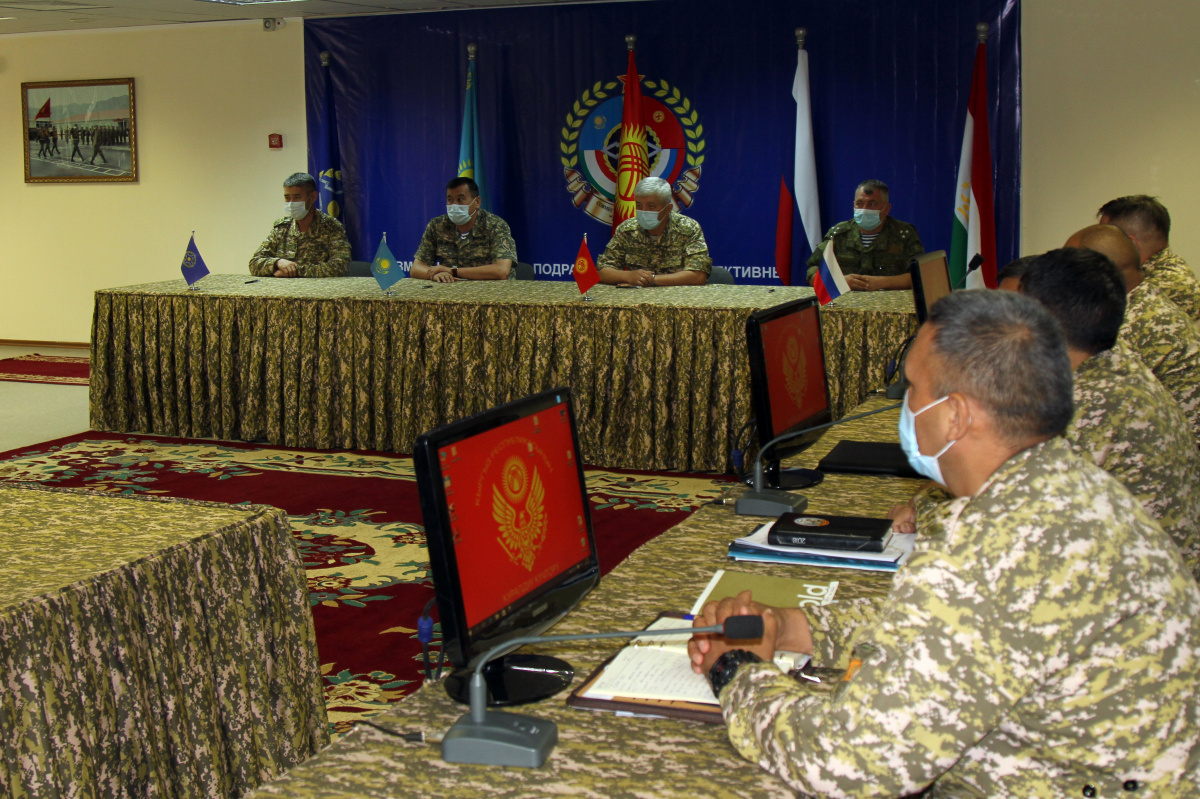The Kyrgyz President Sadyr Japarov received the Ministers of Foreign Affairs of the CSTO member states and the Secretary General of the Organization in Cholpon-Ata on June 30. The meeting was attended by the Foreign Ministers of Kyrgyzstan, Belarus, Kazakhstan, Russia and Tajikistan.
On June 30, 2025, a regular meeting of the CSTO Council of Foreign Ministers was held in Cholpon-Ata (the Kyrgyz Republic) under the chairmanship of the Kyrgyz side, which was attended by the Organization's Secretary General Imangali Tasmagambetov.
Safar Umarzoda, Head of the Department for Countering Challenges and Threats of the CSTO Secretariat, took part in a special event (side-event) on "Countering Radicalization leading to terrorism and Extremism" organized by the Russian Federation on the margins of the OSCE Annual Conference on Security Review, where he reported on the measures taken by the CSTO on countering terrorism and extremism, and willingness to share the experience gained.
On June 19, 2025, in Bosteri, Issyk-Kul region of the Kyrgyz Republic, the XIX meeting of the Council of the Advisory Coordination Center of the Collective Security Treaty Organization on Computer Incident Response (CSTO CCC) was held, which was attended by delegations of representatives of national authorized bodies for responding to computer incidents of the CSTO member states.
On June 24-26, the second staff negotiations were held in the Kyrgyz Republic on the organization and conduct an operational meeting with the Command of the Collective Rapid Deployment Forces of the Central Asian Region (CAR CRDF) and a command and staff training with units of the CAR CRDF "Rubezh-2025", conducted as part of the joint operational and strategic training "Combat Brotherhood-2025".
“Rubezh-2021" training with the Collective Rapid Deployment Forces of the Central Asian Region of collective security of the CSTO will be held at the “Edelweiss” training range
 17.06.2021
17.06.2021
Staff talks were held in Bishkek to prepare and conduct a joint training “Rubezh-2021” with the Collective Rapid Deployment Forces of the Central Asian Region of collective security.
The event took place from June 15 to 17 at the Combat Training Center of the Ministry of Defense of the Kyrgyz Republic. Representatives of defense ministries of CSTO member States of the Central Asian Region of collective security and a group of officers from the CSTO Joint Staff, led by Colonel Berdibek Asanov, participated in the event.
The staff talks participants reviewed and discussed the concept of the training, the contingents' plan of practical actions, issues of comprehensive support, coordinated the order of arrival and deployment of military contingents, and conducted a reconnaissance of the training site. It is planned that the units of the Collective Rapid Deployment Forces of the Central Asian Region of collective security will conduct the training on the territory of the Kyrgyz Republic at the “Edelweiss” training range.
As a result of the talks, a Protocol was signed on the procedure for the preparation and conduct of the joint training with the Collective Rapid Deployment Forces of the Central Asian Region of collective security “Rubezh-2021”.
The organization and conduct of this event is carried out in accordance with the Regulations on the procedure for the preparation and conduct of joint trainings in the CSTO format, approved by the CSTO Collective Security Council decision of November 28, 2019.
The Collective Rapid Deployment Forces of the Central Asian Region of collective security are designed to carry out tasks to ensure the military security of CSTO member States, including participation in repelling external military aggression and conducting joint counterterrorist operations. The total number of personnel is approximately 5,000.
The national formations (contingents) of the Collective Rapid Deployment Forces of the Central Asian Region of collective security (the Republic of Kazakhstan, the Kyrgyz Republic, Russia, and the Republic of Tajikistan) include military formations, units and subunits of permanent readiness of the armed forces and other troops, formations and bodies in which military service is envisaged, equipped with highly mobile military equipment, interoperable weapon and communication systems, and units of combat service, logistic and technical support.










